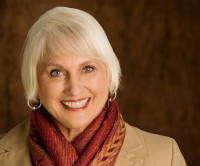From the earliest days of telling tales around the campfire to cave paintings and beyond, telling stories has been how humans communicate.
We tell stories to teach values to our children. We tell stories to celebrate acts of heroism. We tell cautionary tales to pass on lessons we learned the hard way. Our stories are part of who we are and when we share them with another person we are sharing our hearts and inviting them to do the same.
I’m not talking about jokes here. The old stereotype of salesmen always having a story to tell or a new joke to entertain their customers is based on seeing selling as being a good talker with a storehouse of knee-slappers, going from site to site hoping to entertain and amuse their customers as the basis for softening them up to do business. While everyone enjoys a good laugh, telling jokes carries with it a huge risk of offending the very person you wanted to please. Jokes that make fun of someone else or reduce the butt of the joke to a stereotype perpetuate prejudice and discrimination.
If you look at humor in different parts of the country, the same jokes that are told about Olie and Lena in Minnesota to make fun of Norwegians are told about Pat and Mike in Chicago to put down the Irish and about Abie and Moshe on the East coast to put down Jews. The jokes told about Polish people are the same jokes told about blondes. The jokes about lawyers are the same jokes told about politicians and, more viciously, about any race or ethnic group considered unworthy of respect.
So jokes are notthe way we connect, but often the way we try to show superiority to another group or person. They often alienate others and make them uncomfortable and wondering what we say about them when they aren’t in front of us.
Story-telling is a whole different communication skill. A story is based on our own experience and often pokes gentle fun at ourselves.
A story tells how we learned a valuable lesson or how we finally stopped making a mistake. It is self-deprecating and appeals to the listener because it is one flawed but sincere person sharing their own journey with another. It connects us, often eliciting a similar story from the listener. It makes a human connection based on shared experiences.
Story-telling is the art of Mark Twain who tackled tough questions in front of his audiences but did it with a willingness to make fun of his own limitations as well. He is reputed to have said that quitting smoking was easy, and that he himself had done it hundreds of times.
Abe Lincoln knew that stories connect us.It is the art of Abraham Lincoln who told Colonel Silas W. Burt, “I have the popular reputation of being a story-teller, but I do not deserve the name in its general sense, for it is not the story itself, but its purpose or effect that interests me. I often avoid a long and useless discussion by others, or a laborious explanation on my own part, by a short story that illustrates my point of view. So too, the sharpness of a refusal or the edge of a rebuke may be blunted by an appropriate story so as to save wounding feelings and yet serve the purpose… story-telling as an emollient saves me much friction and distress.”
What are your stories? When you want to establish a human connection with a customer, what is it you share?
Maybe it’s the story of how you got started in sales in spite of the negative stereotypes surrounding the job and learned from a customer how to be yourself instead of following some standard sales advice. Or maybe it’s how you were told to make one hundred cold calls and dutifully worked your way down the list, taking the hang-ups with grace, until someone surprised you by saying, “I’m interested. Tell me more,” and at that point you froze and said, “Um, can I call you back?”
Whatever the story, the essence is you’re human, you make mistakes, and you learned a lesson the way most of us do—the hard way. That kind of sharing invites the customer to be human, too, and to share something of themselves. And that’s really what we’re here for, isn’t it?
If you’re interested in story-telling, you might enjoy Mike Bosworth and Ben Zoldan’s book, “What Great Sales People Do.”Editor: Lynn Hasselberger


Read 5 comments and reply